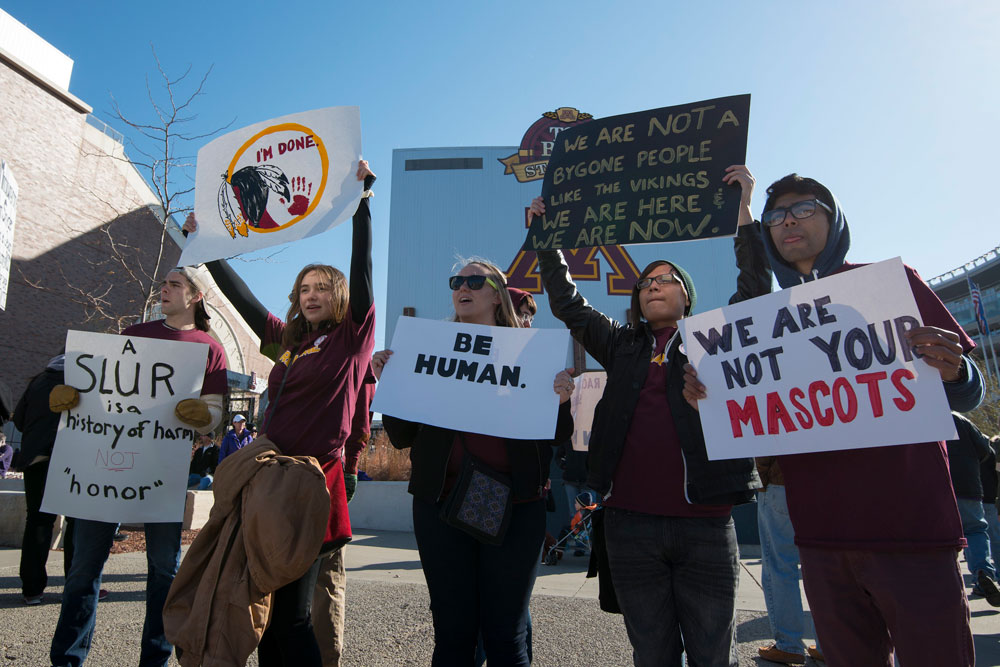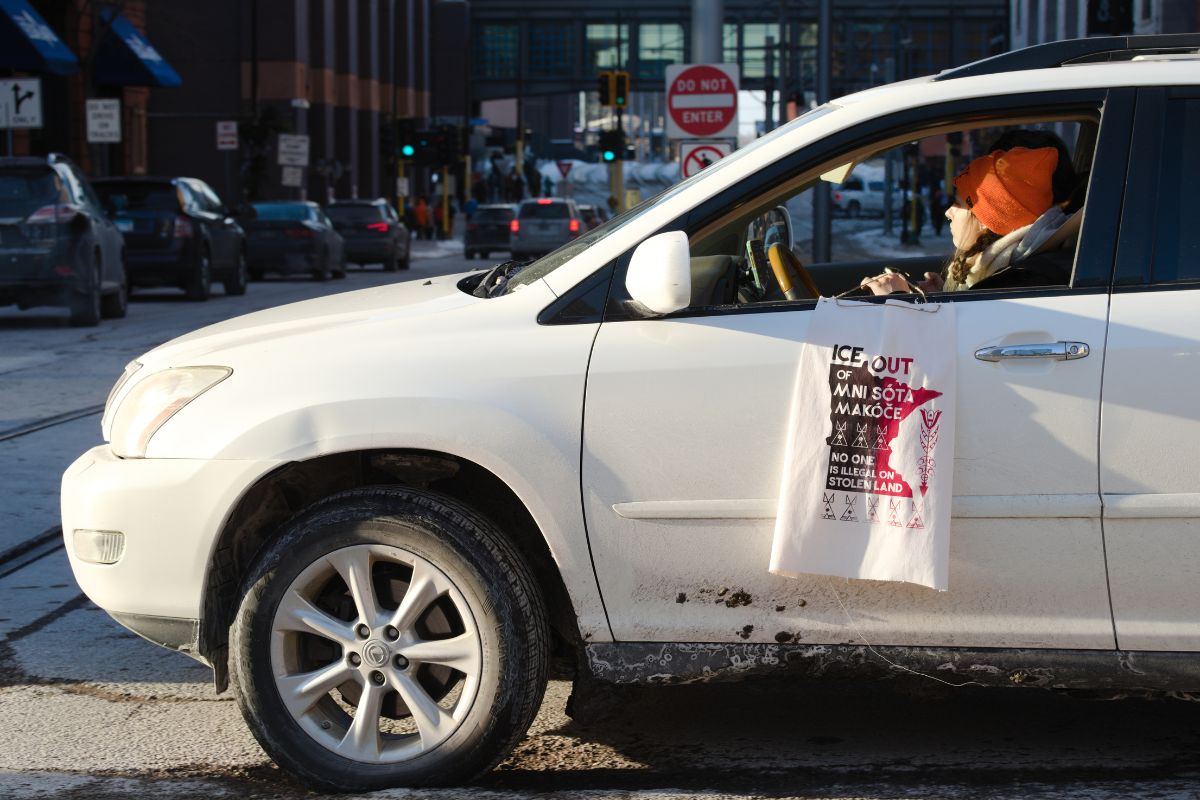
July 3, 2020; New York Times, Sports Illustrated, Indian Country Today, and ESPN
Protests following the death of George Floyd have sounded a call for change across the country. Although the cry has been to defund or abolish the police, some of the echoes that have come back sound a little fainter and somewhat less potent. (No one, it turns out, was asking for episodes of old sitcoms to vanish from digital archives.) One potential consequence, though, is something long sought—changing the offensive name of the National Football League (NFL) team based in Washington, DC.
The dominoes started to fall on Friday when three large corporations—Nike, FedEx, and Pepsi—received a letter from stockholders worth $260 billion advising them to terminate their relationship with the team until it changed its offensive name. On July 3rd, the trade publication AdWeek received a letter from FedEx saying, “We have communicated to the team in Washington our request that they change the team name.” FedEx owns the naming rights to the stadium where the team plays, and one of the team’s owners is Fred Smith, FedEx’s chairman, president, and CEO. PepsiCo concurred, saying in a statement, “We have been in conversations with NFL and Washington management for a few weeks about this issue. We believe it is time for a change.” Nike removed all of the team’s merchandise from its online store.
This combination punch of advertiser pressure led the team to declare on Saturday, July 4th, “In light of recent events around our country and feedback from our community, [we] are announcing the team will undergo a thorough review of the team’s name.” In particular, team majority owner Dan Snyder said, “This process allows the team to take into account not only the proud tradition and history of the franchise, but also input from our alumni, the organization, sponsors, the National Football League and the local community it is proud to represent on and off the field.”
Readers may recall that Snyder has fought furiously to stymie attempts to rebrand the team. In 2013, he said, “We’ll never change the name. It’s that simple. NEVER—you can use caps.” When the US Patent and Trademark Office voided the team’s trademark on the name (reflecting as it does an ethnic slur), Snyder launched a SLAPP (strategic lawsuit against public participation) suit against the Native Americans who brought the case to court.
But his greatest effort was the Original Americans Foundation, a nonprofit of Snyder’s creation designed to manufacture acceptance of the team’s name through strategic philanthropic influence. Though it tried to proffer grants, sponsor events, purchase artisan craftwork, and even give money to a number of American Indian nations and organizations directly, the Foundation was largely rebuffed, rejected as inauthentic and accused of trying to leapfrog established Native American foundations and grantors. (And that’s not even mentioning who he chose to lead it.)
Sign up for our free newsletters
Subscribe to NPQ's newsletters to have our top stories delivered directly to your inbox.
By signing up, you agree to our privacy policy and terms of use, and to receive messages from NPQ and our partners.
This decision to move the name change onto the table follows another gesture last month. The New York Times reports that in June, the Washington team said it would strike the name of George Preston Marshall from the team’s Ring of Fame and its history wall and remove a statue of him from outside RFK Stadium, where the team used to play.
Marshall founded the team and moved them to Washington in the 1930s, and was the last NFL owner to integrate his team. When the team changed its name in 1933 from the Braves, Marshall told team members to wear face paint and the coach to wear feathers on the sideline. He also had an Indian-head logo printed across player uniforms and used a halftime band that wore tribal regalia.
Not to be outdone, according to Sports Illustrated, the baseball team out of Cleveland announced shortly after that “they’ve had ‘ongoing discussions’ on social justice and equality and will ‘determine the best path forward with regard to our team name.’ Seven years ago, the team dropped Chief Wahoo as their primary logo, and removed the logo entirely from uniforms last year.”
“This moment has been 87 years in the making, and we have reached this moment thanks to decades of tireless efforts by tribal leaders, advocates, citizens, and partners to educate America about the origins and meaning of the R-word,” National Congress of American Indians (NCAI) President Fawn Sharp said in a statement. “NCAI looks forward to immediately commencing discussions with the league and team about how they will change the team’s name and mascot, and a prompt timetable for doing so. Indian Country deserves nothing less. The time to change is now.”
DC’s CBS affiliate reached out to Principal Chief Chuck Hoskin Jr. of the Cherokee Nation for comment. Hoskins says, “Even though it’s sponsorships, even though it’s corporate action, even though it’s a matter of money, I think it’s still a win [for advocacy]. I don’t think the corporations would have taken those steps had it not been for the decades of pressure.”
“I think because of this action, communities across America are going to have a deeper dialogue,” Hoskins adds. “I think they’re going to be more open to talking about this.”—Jason Schneiderman










